By: Dr. Peaches Henry
I am relieved that the Llano County (Texas) commissioners kept their library system open and returned banned books to the library shelves. Yet, I am dismayed that Missouri’s House voted to cut all funding for libraries in its version of the state’s annual budget, because the American Civil Liberties Union, the Missouri Association of School Librarians, and the Missouri Library Association are suing the state over the censorship of some books from school libraries across the state. I do not intend to litigate the practice of banning books here. [To get my view on that, see my 1992 essay “The Struggle for Tolerance: Race and Censorship in Huckleberry Finn.”] Instead, during National Library Week (April 23-29), I want to celebrate the Waco McLennan County Library for the profound way it touches the lives of Wacoans.
Our library provides essential services to children, families, individuals, and the community at large. A truly remarkable place, the public library provides safe, accessible, one hundred percent free educational resources to everyone. It pools local resources like educational offerings, job training, and computer or internet access and puts them all in one place for use by the whole community. Whether you are a family looking for a fun story time, an immigrant looking for language help, a student working on a History Fair project, a person needing help on their taxes, or a homeless person looking for a place to cool off, you can find them all at the library—a place that has undergone transformation that makes it an altogether different place from the one previous generations enjoyed.
Indeed, the modern public library that serves Waco McLennan County is not your grandparents’ library. These days, there is more to the story when it comes to the library which provides services far beyond the traditional task of checking books in and out. Even that has been transformed. Patrons can access ebooks, emagazines, and audiobooks in the CloudLibrary and read them anywhere. They can also check out a mind-boggling range of “Special Items” which include blood pressure kits, sensory backpacks for specials needs children, disc golf kits, discovery boxes, and puppet kits. Special Items educational kits include flash cards, literacy kits for preschoolers, and STEAM kits for upper-elementary children. Among the most prized of the special items are the free family passes to local museums and sites including the Mayborn Museum, Cameron Park Zoo, and the Dr. Pepper Museum to name a few. The library’s Special Items collections offer free access to materials that many families cannot afford to purchase.
The library also boasts numerous, varied children’s programs aimed all ages. Everything from themed storytimes (money smart, STEAM, or super hero) to painting to a Minecraft and Roblox club to a look behind-the-scenes tour of the library to summer reading programs is available to children. As a member of the Library Commission, I was delighted to judge the library’s inaugural Edible Book Festival on April Fool’s Day.
In addition to catering to children, the library also offers essential support to adult Wacoans. It maintains partnerships with local entities which deliver needed services. The Heart of Texas Goodwill, for instance, holds computer skills and financial literary classes at the library. The Heart of Texas Workforce Solutions gives free one-on-one job skills training. The library hosts books clubs such as Books & Brew or the Mystery Book Club. It sponsors adult programs such as healthy crock pot cooking, an adult anime and manga club, and free tax preparation not to mention the work of the Genealogy Center.
The modern Waco McLennan County Library is a completely different place from the old Palestine Carnegie Library that I used to walk to as a child. Yet, in the most meaningful way, it remains the same iconic institution that I grew up with. The library is still the community hub that connects people to information, offers essential services and resources, brings people together, encourages lifelong learning, provides safe havens for children and adults, helps build healthy communities, and transports individuals around the world and to other worlds. Like libraries around the state and nation, our local library is an important public institution that we must support and protect now more than ever.
Dr. Peaches Henry is a member of the Waco McLennan County Library Advisory Commission.
Editor: In honor of Women’s History Month, we are featuring interviews with local women leaders. These pieces were written by Baylor University students from the Department of Journalism, Public Relations, and New Media.
By Logan Foust
Surrounded by books, Essy Day gets to do what she loves every day. Day is director of library services for Waco-McLennan County Library.
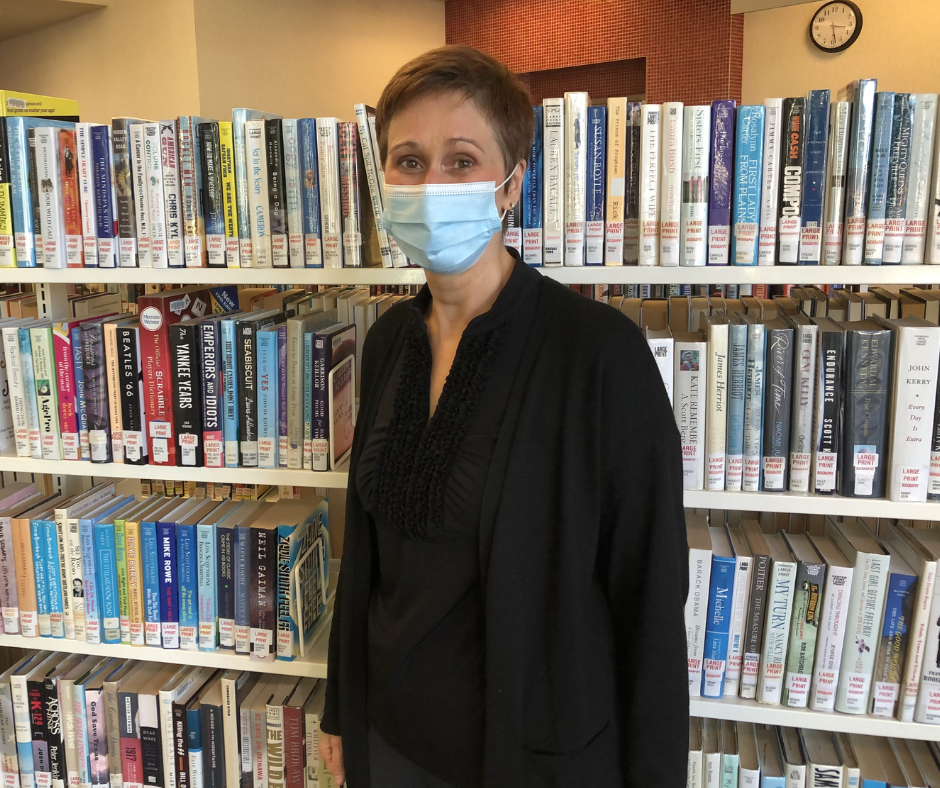
Day found out about Waco libraries when she was visiting Waco on a trip and decided to stop and look around. She was formerly a library director in Kentucky, and when she heard the Waco Library was hiring a director she decided to apply. She then got called for an interview and landed the job.
Day has lived in seven states. During this time she has lived in both big and small cities. She described what it is like to live in Waco and the qualities that drew her here.
“Waco has the small town feeling of everybody cares, which you don’t get in a larger city,” Day said. “But yet it’s large enough that you can still have some of the anonymity that you get in a large city.”
Day shared why she believes it is meaningful for people to visit libraries.
“Libraries are important because they are the great equalizer. They provide equal opportunity for everyone. As a child, I learned that in the library everyone was welcome and everyone had the same opportunities. No matter how poor I was or how young I was, the library staff treated me, and others, equally,” Day said. “The more I read, I learned that reading could transform and change a person’s life and books from the library were free. So, reading and libraries changed my life, and I believe that they can do the same for others. The library is a place where opportunities and choice and discovery are available to everyone.”
There are four library locations: Central, East, South, and West. The Central library is the biggest and main branch. Library cards are free to people who live in McLennan County and Baylor University students. Not only does the library card allow you to check out books, but the library also has a wide variety of literacy and sensory kits for kids, digital audio books, and blood pressure kits.
One special feature these Waco libraries offer are museum passes for attractions throughout Waco. Card holders are allowed to check out these passes for seven days, and they allow you to get into places like Cameron Park Zoo, Dr Pepper Museum, and the Mayborn Museum for free.
“Libraries connect people. So we connect people to information, we connect people to each other, and we connect people to ideas that they might not have thought of,” Day said.
Day mentioned how libraries are not the same as they were a few years ago. She said instead of the librarians trying to quiet everyone who walks in the door, they now encourage families and kids to come and play with the books and toys they have available.
“We believe in providing access to information to everyone, regardless of their age, gender, socioeconomic status, or religion,” Day said. “Libraries can transform and save lives.”
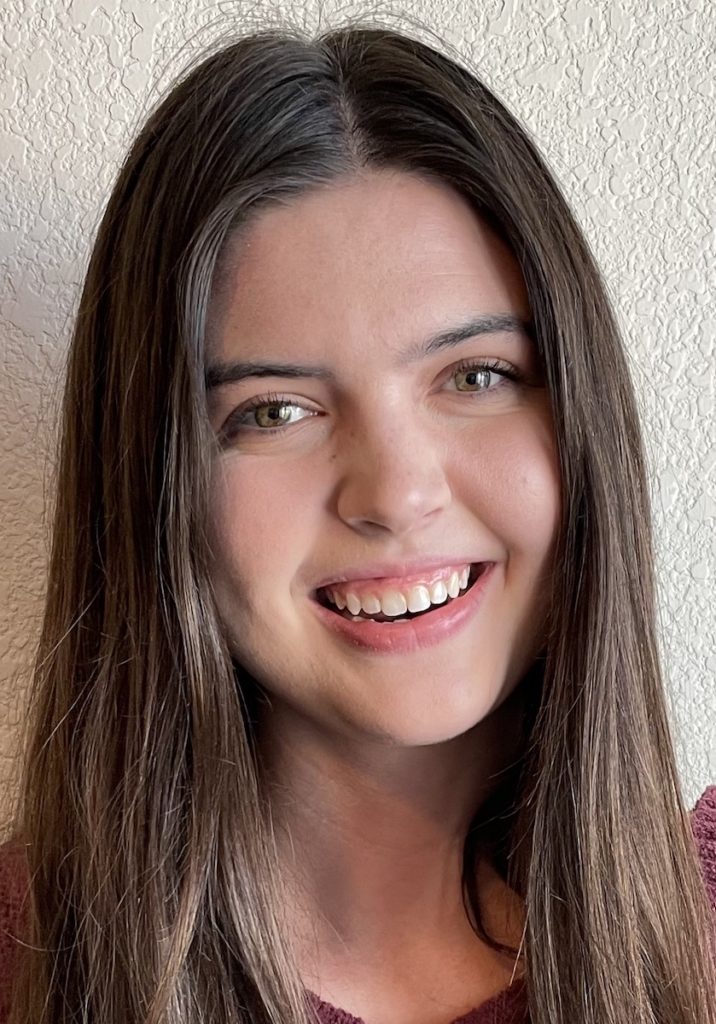
Logan Foust is a sophomore at Baylor University. She is from Austin and is majoring in journalism, specializing in photojournalism, and minoring in studio art.
The Act Locally Waco blog publishes posts with a connection to these aspirations for Waco. If you are interested in writing for the Act Locally Waco Blog, please email Ferrell Foster at [email protected].
By Ashley Bean Thornton
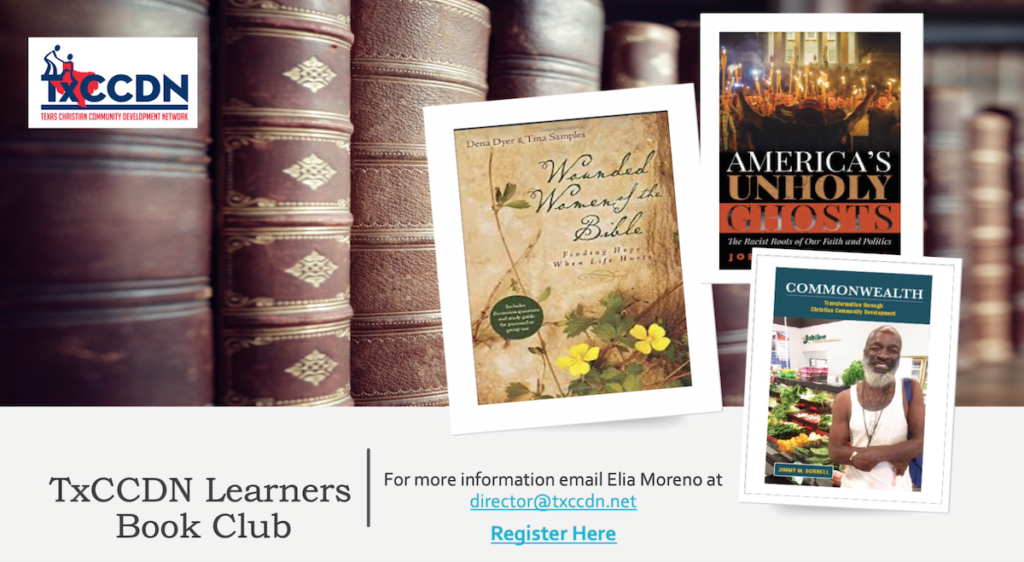
I’m sharing a link to TxCCDN Learners Book Club. The Texas Christian Community Development Network website states: “This book club provides a safe place for the reader to learn and grow on topics such as community development, professional development, racial injustice, poverty, self-growth, and much more. Some of these topics are uncomfortable and at times difficult. Rest assured not one of us knows it all but together we have the opportunity to dialogue and learn from each other.”
Their list of upcoming books may be ones to think about for ALW Book Club.
Here’s the link: https://txccdn.net/event/txccdn-learners-book-club/
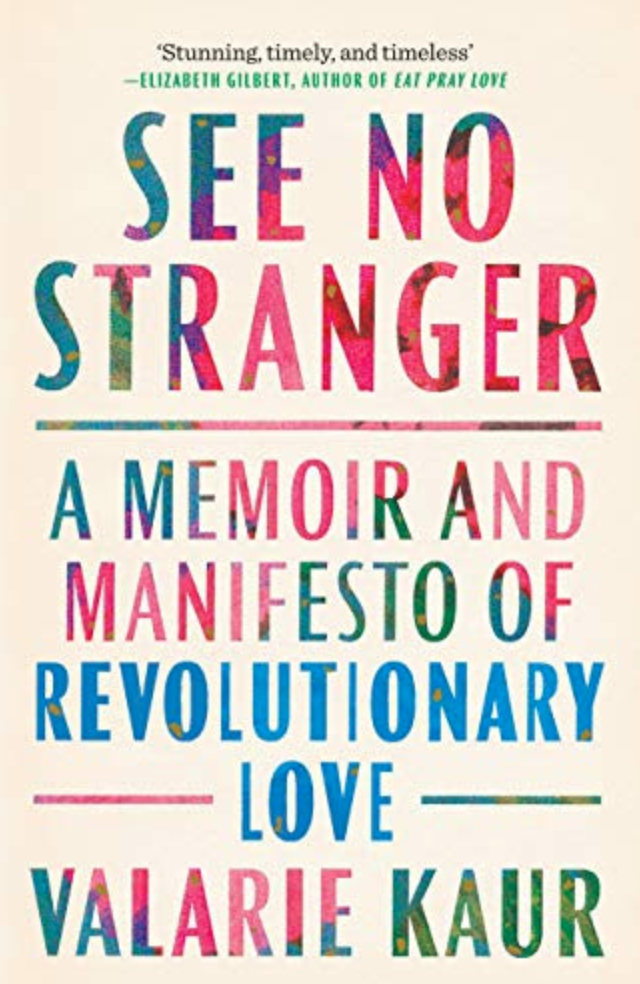
Our next meeting will be March 16 and the book is See No Stranger: A Memoir and Manifesto of Revolutionary Love, by Valarie Kaur. Here’s a link to one of her TED talks https://valariekaur.com/ted/.
We’ll send out meeting details as we get closer.
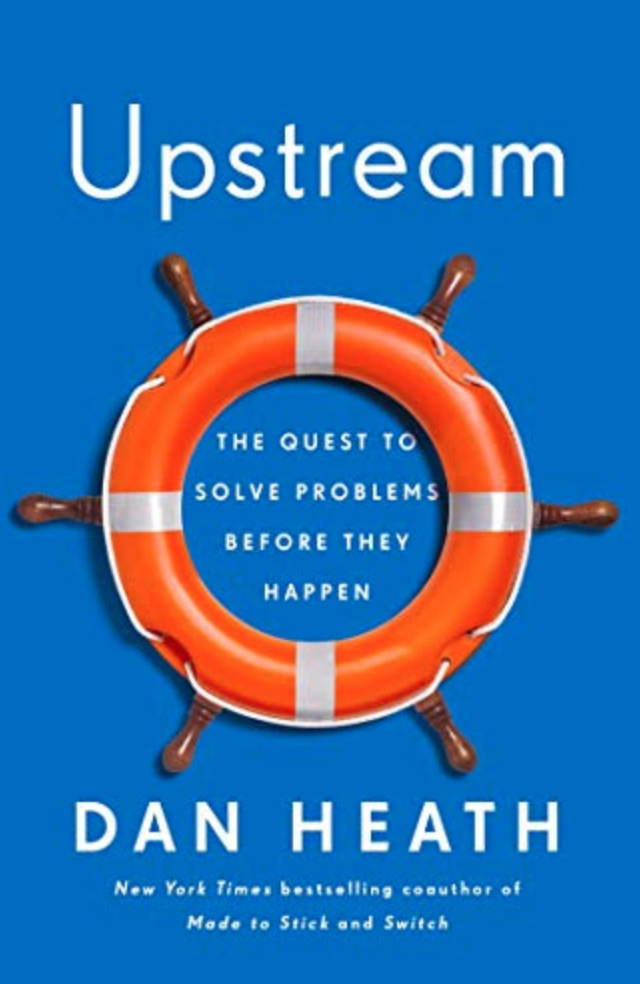
The May 11 book will be Upstream: The Quest to Solve Problems Before They Happen, by Dan Heath (rain delay, May 25, if needed)
We will take off June, July, and August.
Stay safe and if you have comments or thoughts, please don’t hesitate. Email me!
Do you have friends who want to join our book club? Sign up to be on the mailing list here.
As a child, Rachel Ledbetter was entranced within the emerald green pages of “Goodnight Moon.” Through the scenes of small kittens, strewn gloves and a sowing rabbit, Ledbetter found a soothing calmness with the turning of each page.
During her early childhood, Ledbetter was able utilize her imagination and creativity by acting as the narrator for the books she pretended to read. Through a rollercoaster of intonation and created words, Ledbetter was allowed the freedom to dictate the world within the emerald pages of “Goodnight Moon.”
“I could just do what I wanted per say and it was still reading in my own way, and that instilled in me a sense of enjoyment. So, I learned to love it, because there was a freedom in it,” Ledbetter said.
The ability for children to “read” whatever words they wish to read lets them grow confidently in their language acquisition and reach academic milestones, according to Ledbetter.
Ledbetter is the manager of the Reach Out and Read program for the Waco Family Health Center. Within the last three years, the program has administered 21,000 books to patients ranging from 6 months to 5 years old.
Her favorite books serve as both nostalgic reminders for the mother and valuable teachings for the youth she serves. The books include “Goodnight Moon” by Margaret Wise Brown, “Corduroy” by Don Freeman, “Don’t Let the Pigeon Drive the Bus”by Mo Willems and “A Box Can Be Many Things” by Dana Rau.
According to Ledbetter, books are resourceful tools for teaching lessons and equipping children with school readiness. “Goodnight Moon” teaches routine and consistency. “Don’t Let the Pigeon Drive the Bus” teaches that every action has a consequence. “A Box Can Be Many Things” teaches the importance of creativity.
For the mother, “Corduroy” emphasizes the beauty of one’s self-worth through the life of a stuffed teddy bear.
“It touches my ‘mama heart,’ because it teaches you to love things as they are,” Ledbetter said.
“Just because you’re missing a button doesn’t mean something is wrong with you. An imperfection doesn’t diminish you as a person.”
By Kathryn Herd
As a child, Rachel Ledbetter was entranced within the emerald green pages of “Goodnight Moon.” Through the scenes of small kittens, strewn gloves and a knitting rabbit, Ledbetter found a soothing calmness with the turning of each page.
During her early childhood, Ledbetter was able utilize her imagination and creativity by acting as the narrator for the books she pretended to read. Through a rollercoaster of intonation and created words, Ledbetter was allowed the freedom to dictate the world within the emerald pages of “Goodnight Moon.”
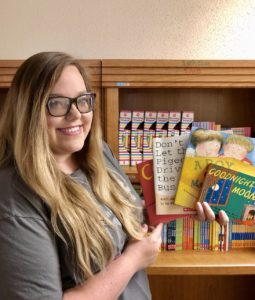
“I could just do what I wanted per say and it was still reading in my own way, and that instilled in me a sense of enjoyment. So, I learned to love it, because there was a freedom in it,” Ledbetter said.
The ability for children to “read” whatever words they wish to read lets them grow confidently in their language acquisition and reach academic milestones, according to Ledbetter.
Ledbetter is the manager of the Reach Out and Read program for the Waco Family Health Center. Within the last three years, the program has administered 21,000 books to patients ranging from 6 months to 5 years old.
Her favorite books serve as both nostalgic reminders for the mothers and valuable teachings for the youth she serves. The books include “Goodnight Moon” by Margaret Wise Brown, “Corduroy” by Don Freeman, “Don’t Let the Pigeon Drive the Bus” by Mo Willems and “A Box Can Be Many Things” by Dana Rau.
According to Ledbetter, books are resourceful tools for teaching lessons and equipping children with school readiness. “Goodnight Moon” teaches routine and consistency. “Don’t Let the Pigeon Drive the Bus” teaches that every action has a consequence. “A Box Can Be Many Things” teaches the importance of creativity.
“Corduroy” emphasizes the beauty of one’s self-worth through the life of a stuffed teddy bear.
“It touches my ‘mama heart,’ because it teaches you to love things as they are,” Ledbetter said.
“Just because you’re missing a button doesn’t mean something is wrong with you. An imperfection doesn’t diminish you as a person.”
March is National Reading Month, a whole month designated to encouraging Americans – and by extension Wacoans – to read! The Act Locally Waco blog is beating the drum for National Reading Month by hosting a blog series throughout the month of March, called “Books Matter.” Every day throughout March we will be sharing a post about a Waco resident and a book that matters to him/her. Thank you to students from the Baylor Department of Journalism, Public Relations and New Media and professor Amber Adamson for help with this fun project. To read all the blog posts so far, click here.
“To quote my daughter’s favorite movie, Frozen 2, ‘Do the next right thing,’” Dillon Meek said.
Meek, a local lawyer and city council member, first read The Hiding Place in the 6th grade and then reread it about two years ago.
“It’s a true story, which I think makes it all the more compelling, but it reads like a fiction-adventure book about a family who chooses to do the right thing in the midst of really negative consequences,” Meek said.

The Hiding Place is an autobiography written by Corrie Ten Boom about how her family hid Jews in their watch shop in Poland during the height of Nazi power. This dangerous endeavor saved the lives of countless Jews, but resulted in the arrest and ultimately, the imprisonment of Ten Boom’s whole family. Once in the concentration camp, Ten Boom and her family were able to continue their ministry by showing the love and kindness of Christ to those around them.
“They weren’t looking to be these great figures of social justice,” Meek said. “But the war and the Holocaust happened around them, and they just responded as they believed they were required to. I think they did so lovingly and with dignity to the people around them. Obviously unafraid of the consequences to themselves, and I think ultimately carrying love completely, which I think is profound too.”
Meek said he believes that this story of hope and doing the right thing can continue to inspire people today as it shows how everyday people can choose to have a positive impact on the world around them. This is also a story of sacrifice, and Meek said this story encourages the people of Waco to ask the question of how they can have a positive impact in their world where there might be injustice around them.
“In Waco, for me specifically, there is generational poverty and I [think] there are solutions to resolving that,” Meek said. “My heart and my hope is that we can bring creative and innovative changes to our system to break generational poverty. That’s very different than responding to Nazis but it’s recognizing that there’s change, there’s positive impact in my world and so as an ordinary person, what can I do?”
March is National Reading Month, a whole month designated to encouraging Americans – and by extension Wacoans – to read! The Act Locally Waco blog is beating the drum for National Reading Month by hosting a blog series throughout the month of March, called “Books Matter.” Every day throughout March we will be sharing a post about a Waco resident and a book that matters to him/her. Thank you to students from the Baylor Department of Journalism, Public Relations and New Media and professor Amber Adamson for help with this fun project. To read all the blog posts so far, click here.
By Grace Shaw
Savanna Cabrera, a student at McLennan Community College, said she believes the Nancy Drew series has impacted feminine culture today.
Cabrera said she struggled with reading growing up. When she found the Nancy Drew series, it sparked a love of reading and helped her out of her weakness.
When she was in the library one day in middle school, she found one book in the series and decided to read it. She began reading many in the series. This series motivated her to love reading and gain perspective on social constructs of societal expectations of women.

The Nancy Drew series taught Cabrera to break cultural gender stereotypes and to be “daring and courageous.”
The Nancy Drew series has influenced many women to be valiant and bold, to go out of their comfort zones, Cabrera said.
“This series is really empowering. The author truly broke the boundary for young girls,” Cabrera said. “She broke all the cultural stereotypes for what people thought a girl should be…She has inspired me to be confident in myself, be brave and daring.”
Cabrera said the protagonist in the series, Nancy Drew, taught her to be confident in middle school. It taught her to let go of her insecurities and be proud of her strengths. This series has been one that has impacted her life and who she is today. Nancy Drew has been a role model that empowered Cabrera to believe in herself.
March is National Reading Month, a whole month designated to encouraging Americans – and by extension Wacoans – to read! The Act Locally Waco blog is beating the drum for National Reading Month by hosting a blog series throughout the month of March, called “Books Matter.” Every day throughout March we will be sharing a post about a Waco resident and a book that matters to him/her. Thank you to students from the Baylor Department of Journalism, Public Relations and New Media and professor Amber Adamson for help with this fun project. To read all the blog posts so far, click here.
By Brittney Matthews
Books are valued primarily for education and creativity, but local librarian Sarah Freeland values books most for the connection they provide within communities.
Books have a different impact on each individual and for Freeland the book “Anne of Green Gables” by L.M. Montgomery is the book that has had the biggest impact on her. It’s about Anne, a young orphan girl, who lives on Prince Edward Island and gets adopted by a family, when the family thought they were adopting a boy. Anne uses writing and storytelling to cope with the darkness in her world. In the end, the family falls in love with her. Throughout the series, the reader walks alongside Anne and her life up to adulthood.
“It really is this wonderful story of family and community,” Freeland said. “But for me, I love the way you see community connecting through story… and it’s her stories that connect people and unite them.”

Freeland said this book impacted her by connecting her to other people who had read the book. It amazed her how this book could create a common ground of understanding between two people.
“I think reading really gives you the opportunity to explore, engage with and connect with people that are different from you,” Freeland said.
Freeland encourages others to read “Anne of Green Gables” because Montgomery doesn’t shy away from the hardness of reality, while at the same time showing that there’s more than difficulty in life.
“You have that [difficulty] but you also have this sense of imagination with a positive outlook,” Freeland said. “There is opportunity for joy and wonder. That to me is really encouraging.”
As a librarian, Freeland sees firsthand how books impact people in the community. For Freeland, being a librarian means assisting people in making the connections that books create within the community and helping others grow in their love for books.
March is National Reading Month, a whole month designated to encouraging Americans – and by extension Wacoans – to read! The Act Locally Waco blog is beating the drum for National Reading Month by hosting a blog series throughout the month of March, called “Books Matter.” Every day throughout March we will be sharing a post about a Waco resident and a book that matters to him/her. Thank you to students from the Baylor Department of Journalism, Public Relations and New Media and professor Amber Adamson for help with this fun project. To read all the blog posts so far, click here.
By Cole Grafton

Books have the ability to change the way the reader sees the world. For Rick Tullis, “Goodbye to a River” by John Graves helped him connect with nature and the world around him.
Tullis is the president of Capstone Mechanical, a local engineering and construction company.
“‘Goodbye to a River’ appealed to me because it’s about Texas rivers,” Tullis said. “I love rivers and love being around them or on them, and so that’s what attracted me to go and read the book.”
Tullis explained that the book was an autobiography of John Graves’ two week trip down the Brazos River, where he had spent many of his summers growing up.
“They were installing lots of dams along the river, and there were several other ones proposed at the time. So he said, ‘OK one last chance, I’m going to get in the canoe and float down the river,” Tullis said. “And he’s a great storyteller, so his book is not only about his journey down the river, but he tells kind of the history of the different parts along the way.”
Tullis then explained how the book reminded him of his own life and experiences that are similar to the adventures described by Graves.
“This book matters to me because I’ve got a little farm on the middle Bosque which flows into the Brazos, where he was. And 20 years ago with a friend of mine, I kayaked from Crawford down to Lake Waco, and it was just totally awesome,” Tullis said. “I felt like I was in a totally different part of the country. It was so beautiful.”
The similarities between the lives of Tullis and Graves have helped Tullis to see the river in a new perspective, and to better appreciate Graves’ trip down the Brazos.
“I connect with the way he sees the life on the river and … the connection to history, but also to the animals, and the plants and the life that a river brings to an area,” Tullis said. “And so I get it. I see that whenever I go out to the river myself, and I can really connect with how the author views those things.”
March is National Reading Month, a whole month designated to encouraging Americans – and by extension Wacoans – to read! The Act Locally Waco blog is beating the drum for National Reading Month by hosting a blog series throughout the month of March, called “Books Matter.” Every day throughout March we will be sharing a post about a Waco resident and a book that matters to him/her. Thank you to students from the Baylor Department of Journalism, Public Relations and New Media and professor Amber Adamson for help with this fun project. To read all the blog posts so far, click here.
By Catherine Rennell
During National Reading Month, McLennan County Commissioner Pat Miller celebrates by revisiting her favorite book “Jesus and the Disinherited” by Howard Thurman.
Thurman, an author and activist of the early 20th century, wrote his 1949 book in response to the increase in segregation and racism in America. He was inspired by Mahatma Gandhi’s non-violent protests and relied on his own Christian theology to provide a message of hope for marginalized African Americans.
“He introduces the life of Jesus in parallel to the African Americans existing in America to Jesus as a Jew existing under Roman authority,” Miller said.
Miller grew up in New York and moved to the South at 10 years old. She said she experienced the Civil Rights movement and segregation in Waco through the slow integration of teaching staff at private schools and later the students themselves at public schools. Miller experienced the harsh reality of American racism that Thurman writes about in his novel. But for Miller, Thurman provides a hopeful message that has inspired and comforted her ever since she read “Jesus and the Disinherited” for the first time.

“What impressed me most was that it was coming from a Christian perspective,” Miller said. “He addresses the question of how you can embrace Christianity in light of the reality of what is perceived to be the African American’s place in America.”
Miller said she relied on Thurman’s book for guidance when running for office and that it is the most important book to her at this point in her life as county commissioner.
“What I found myself having to do, when asking people for their vote,” Miller said, “is it made me really examine my faith in the Democratic system, and America being a place where everybody can be part of the American dream. I found myself relying more and more on some of the points he made in his book.”
